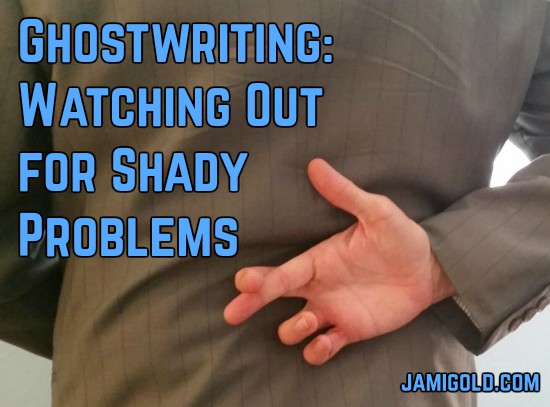Using Ghostwriters: Authors vs. Author Mills — Guest: Shiloh Walker

Last week, news of the #CopyPasteCris plagiarism scandal hit the writing world (52 books, 34 authors, 3 articles, 3 websites, 2 recipes and counting). As I mentioned last time, two topics beyond the extreme plagiarism have gained attention:
- Authors and readers are frustrated with Amazon.
Scammers will always look for ways to scam systems, but a smart system attempts to change their processes to prevent known scams from continuing. Unfortunately, Amazon has not made enough changes to interfere with scammers’ manipulations. For more about these issues, check out these summaries others have put together: David Gaughran, Susan Tisdale, Dakota Willink, Twitter Moment. - Ghostwriting has come under fire with complex questions from many sides.
The plagiarist, Cristiane Serruya, blamed her ghostwriter, which led to the whole ghostwriting profession being targeted. The evidence gives every reason to doubt her claim (as I mentioned last week), but even if it were true, that “ghostwriter” would be a scammer and not a professional ghostwriter, and Cristiane would still be responsible for messing up—this time as the employer of a ghostwriter.
Even though the #CopyPasteCris case is about plagiarism and not ghostwriting, more authors and readers now know that ghostwriters exist for fiction. Given that most of us learned about ghostwriting due to celebrity books, I invited award-winning author and ghostwriter Shiloh Walker to come by last time to help us understand the facts beyond our assumptions about this profession.
Not surprisingly, both authors and readers have valid concerns about the ethics of using ghostwriters. For some, it’s never okay because it’s misleading (or worse) if a story has a different writer from the author named on the book. For others, there’s a difference between the ethical use of professional ghostwriters and “author mills.”
At the end of the day, many of the concerns regarding scammers, ghostwriters, and author mills come down to respecting readers:
- Are they being manipulated by fake Amazon rankings or reviews?
- Are they being tricked into buying content they might have already purchased?
- Are those putting an author name on the book doing their best to deliver quality stories?
Personally, I think there’s a legitimate place for ghostwriting, and even though we’ll probably all never agree on the ethical line, I hope we can all agree that some practices are shadier than others and would be over most people’s ethical line. For insights into the shadiness, Shiloh is back today sharing what an author mill is, how they differ from legitimate authors using ghostwriters—especially when it comes to respecting readers—and red flags to watch out for.
Please welcome Shiloh Walker! *smile*
*****
The Difference between Professional Ghostwriting and Author Mills
By Shiloh Walker
Hello, everybody. It’s Shiloh and I’m back. For those just now joining us, I’m an author of romance, and under my pen name J.C. Daniels, I also write urban fantasy.
If you’re alive and breathing in the writing world, you’ve probably noticed a big brouhaha over the past week or so, and while plagiarism is at the core of it, there’s been a lot of focus on ghostwriting and some seedy underbelly stuff coming out about shady practices in the self-publishing industry.
Oh, by the way, I’m also one of those pesky ghostwriters as well.
I turned to ghostwriting after a publisher shut down and interest in my work from my traditional publishers waned. Readers love my work, but I just can’t get traction. And being a person who requires food and shelter, plus having kids who need the same and also being troubled by those weird people who expect me to pay bills…well, I needed another source of income.
Ghostwriting was the source I found.
I’ve been doing it professionally for several years now, and I can say unequivocally that there is a big, big difference between those who ghostwrite professionally and those who churn out quick pieces for quick pay, which is then turned over, copyright & all, to what basically amounts to a digital author book mill.
What Do Author Mills Have to Do with Ghostwriting and Amazon Scams?
These digital author book mills hire freelancers by the fistful, have them produce quick, typically low-quality works, and then put them out as fast as they can release them. But it’s more than just that, and it’s amounted to the problem that eventually led to #copypastecris.
- There are entire groups on Facebook, videos on Youtube, all directed at how to…well, be an author without actually doing the authoring part, and how to make money at it.
- There are talks about how to use clickfarms to imitate page reads, buy reviews, manipulate the Amazon ad system that’s exclusive to Amazon’s KDP author platform, etc.
But shockingly, there’s more than that.
Turning Old Books into “New” Releases
One thing I was naively unaware of until recently was a practice of buying and selling already published works. I’m not talking public domain works, either.
Say Author A has a popular series on Amazon, but after six months, sales go down. She then pulls it from Amazon and sells to author B for $1000, who then retitles it, puts a new cover on it and his/her new name…viola. A ‘new’ series to manipulate & send to clickfarms, etc.
There is more detail about it, with screenshots, at my website, but I’ll save Jami the trouble of the angry people who’ve come knocking at my door since I started discussing it. You’re welcome to visit my blog to look things over.
Scammers Care Only about the Money They Can Make
This is just another practice by author book mills…book packagers who aren’t particularly invested in the stories themselves, but rather on the business of making money, and it’s being done at the cost of genre fiction.
So how do you differentiate between legit author/ghostwriters deals and author mills/book packagers?
Is it an issue of using pen names or even multiple pen names?
What’s the problem?
Ghostwriters Should Vet Their Clients Too
Legit ghostwriter/author partnerships, from my experience, involve a partnership and yes, there are even fiction GW/author partnerships that I feel can be legitimate and non-predatory or devaluing to the genre of writing.
This involves due diligence on part of the ghost beforehand, and any writer planning to try their hand at ghosting needs to do their homework.
I’ve mentioned before that I first considered ghostwriting after reading about my friend’s experiences, then asking for her advice. Understanding the field is crucial, and even after taking to my friend, I studied and read up on so many other websites, I can’t even think of them all.
Many of the sites I visited were for those who did biographies or memoirs, like Andrew Croft, or others who wrote articles and such, but there was still valid information. I learned about non-disclosure agreements, how to avoid predatory clients, and when to back off of a deal.
How Can We Identify an Author Mill?
One thing that was obvious is that there was no cut and dried path to finding a career as a ghostwriter, but once you’ve landed several jobs, it makes it easier to distinguish the legit jobs from the predatory ones, and having already had a career in publishing, it made it easier to spot something that didn’t seem quite right when something suspicious came my way.
First, let me explain the concept behind the term author mill, as how I’m using it isn’t the same as the one generally used.
The Usual Description of an Author Mill
An author mill is a publisher that relies on producing large numbers of small-run books by different authors, as opposed to a smaller number of works published in larger numbers. Wikipedia
Victoria Strauss of Writer Beware was the first to use the term and her usage is about print books.
How I See the Digital Version of Author Mills
A digital author mill is a more of a book packager. This packager may use ghostwritten books, usually obtained via low-paid ghostwriters, although some packagers have apparently made a practice of buying and selling manuscripts—they see them simply as ‘assets’, according to one who engages in the practice.
These works are released quickly so the packager, operating as an ‘author’, has what looks like a fresh slew of releases, coming out weekly/bi-weekly, etc.
The ‘recycled’ works are treated as ‘new’ books, re-covered, retitled, under a different pen name with no reference to it having been previously published, and the copyright date doesn’t refer to the book’s original copyright date, but to the date the ‘new author’ reissues it.
Author Mill Warning Signs
There are also similarities in the ‘warning signs’ Ms. Strauss mentions, such as:
“Book output disproportionate to staff.
Some author mills boast thousands of authors, but not all are so gigantic. The smaller ones may look a lot like respectable small presses. However, book output needs to be proportionate to staff. 50 new books a year may not sound excessive–but if the publisher is a one-person shop, or has only one or two staff editors, that’s way too many to carefully acquire, edit, and market.”
Staffing, of course, isn’t an issue with authors, but look at the output. Authors don’t produce, logically, a book every week, every couple of weeks.
So if you’re asked to provide a complete 80k book in a month, with speed bonuses, etc, you could very well be looking at somebody running an author mill.
“Badly edited, error-filled, overpriced books.
Again, something that author mills share with vanity publishers and self-publishing services, and an obvious warning sign under any circumstances. This is why, if you can’t find the publisher’s books in stores, it’s a good idea to order one or two and check them out.”
While pricing isn’t an issue with digitally-released author-milled books, quality can be and likely is.
High word count demands will affect quality, if not immediately, then over time, and for most writers, it’s going to happen fast.
One thing that helped me distinguish the author mill job from the legit ones, even early on, was the demands laid and the specifications.
“Complaints.
The bigger the author mill, the more unhappy authors it is likely to have. The more unhappy authors, the more likely they are to talk about it. The two biggest author mills are the subject of a large amount of negative online discussion, which can easily be found by Googling the publishers’ names. If anyone asks, the publisher may try to pass this off as a smear campaign organized by disgruntled writers, or to emphasize how many authors haven’t complained. But where there’s smoke, there’s usually fire.”
Then there’s this. It’s not that the ‘authors’ involved complain. But when people point out the deceptive practices, such as recycling manuscripts (reselling ‘assets’), there are attempts to misdirect and try to suggest that major publishers and indie authors do the same thing, when it’s not the same thing at all.
Republishing Old Content: Legitimate vs. Author Mill
Authors who get their rights back will re-cover, because unless they purchase the rights to the cover, too, a new cover is needed. Plus, many covers become dated after ten or more years. While there may be a title change, no attempt is made to hide the original copyright date. Some authors do rebrand, but even that tends to be done openly because romance readers are voracious, and if an author is branching into another subgenre, she’ll want to appeal to both her new readers and her older reader base as well.
What's the difference between shady vs. ethical use of ghostwriters? by @shilohwalker Click To TweetA simple google search or check on Goodreads will reveal the information about earlier editions.
This isn’t the case with the ‘repackaged books’ sold between author mills/book packagers. The material isn’t changed, sometimes even the character names remain the same. The blurbs are rewritten which makes the book look like a different title, and a new title, a new cover, with a new author’s name is put on the book.
There have been attempts to misdirect this as having multiple pen names or not buying the rights to use the pen name along with the book, but this is just yet more deception, because these books are still being sold as new material, with nothing to indicate it had been previously published.
Pen Names: Legitimate vs. Author Mill
I write under two pen names, Shiloh Walker & J.C. Daniels. In a good year, I can publish three books, averaging 60-80k each and that’s split between the two pen names.
I still do the GWing, too, because I need the money.
A book packager/author mill who is looking to hire 5-10 authors, expecting each of them to write 60k or more a month, is looking at roughly a minimum of five full length books a month, adding up to 60 published books a year. Sixty. Whether that’s split up under two names, three names, four names, ten names, that’s an insane number of books and this person isn’t acting as an author, but as a book packager/author mill.
It’s a matter of quantity…and quality.
Vetting Author-Clients: Discerning the Difference
Author mills/book packagers are all about speed. Yes, authors have deadlines, etc., and I try to keep to a steady pace with my clients while still producing XXX a day for myself. But packagers/author mill types emphasize speed.
What makes author mills shady? Learn the red flags to avoid with @shilohwalker Click To TweetThey seem to emphasize speed over quality, making few references to story quality, although there are requests that the material be error-free. Which, as any writer knows, isn’t going to happen. All works come with errors, because they are written by humans and humans make mistakes. But the push for quantity gets top billing, with those speed bonuses.
Additionally, many of the job postings come with wording like…can you write in the style of…then several of the current popular romance bestsellers are Amazon are listed.
Most of these don’t come with language specifying that the ‘author’ will be providing you with material to work with up front, something s/he put together, put time and effort into. If you look deep enough on the various freelancing sites, there are even those out hiring ghostwriters who also hire ghost plotters.
Red Flags for Ghostwriters to Watch Out For
The difference between an author who is looking for a legit ghostwriter and somebody who is just looking to cash in a hot-selling genre, subgenre and author’s style is going to come down to what they are asking of the ghostwriter…and are they trying to hire them by the dozen in order to maintain a steady stream of releases.
Author Mill Job Listings for Ghostwriters:
Is the author looking to hire a ghost asking for things like:
- Must write XXXX words a week, with speed bonuses
- Can you provide outlines, synopsis, & blurb
- Can you write in the style of ….
And there’s little focus on quality.
At the same time, it’s not uncommon to see the person looking to hire:
- Five or more ghosts
- Plotters for XXX subgenre, XXX subgenre & XXX subgenre.
These should be red flags, and if nothing else, the ghost should take a good hard look at the prospect of getting involved.
Most of these types pay what averages to about $6 or $7 an hour. There are some who do pay better, but it’s not what others looking for a solid career as a pro can make.
Legitimate Job Listings for Ghostwriters:
A legit author looking for a professional ghost is going to be looking for:
- Somebody who can meet deadlines
- Somebody who can provide quality work
- Somebody who can fit the style of writing they have in mind
- One ghostwriter
- Somebody who can work with the plots/ideas they already have
These authors will absolutely interview a number of people, but they aren’t looking to hire them by the handful, or by the dozen. They aren’t looking for people to plot their books, because they’ve done that.
They want somebody to help write it.
*****
 Shiloh Walker is an award-winning writer…yes, really! She’s also a mom, a wife, a reader, and she pretends to be an amateur photographer.
Shiloh Walker is an award-winning writer…yes, really! She’s also a mom, a wife, a reader, and she pretends to be an amateur photographer.
She published her first book in 2003. Her latest suspense, Cocksure, released in November 2018, was inspired by one of the big book dramas of 2018, COCKYGATE. You can read about Shiloh’s cocky (yes, we can use that word now) hero in book digital and print.
Read more at her website & join her newsletter for a chance to enter the monthly giveaway. She also writes romantic suspense and contemporary romance, and urban fantasy under the name J.C. Daniels.
Shiloh’s Website | J.C. Daniels’s Website | Twitter | Facebook
*****
About Cocksure:
 Sabrina: He’s the cockiest bastard I’ve ever met and I mean that with all the affection and adoration in the world. I’ve been in love with him for years, and not just because of those intense blue eyes or that slow smug smile that promises to make all your dreams come true.
Sabrina: He’s the cockiest bastard I’ve ever met and I mean that with all the affection and adoration in the world. I’ve been in love with him for years, and not just because of those intense blue eyes or that slow smug smile that promises to make all your dreams come true.
Luke: Sabrina is one of the sharpest, funniest, kindest people I’ve ever met. Sometimes, I think I’m taking advantage of her, but I seriously cannot cope with my hectic lifestyle without her to keep me on track.
When my mother tells me that all she really wants in life is to see her kids happy and settled down, I do the stupidest damn thing ever and announce that Sabrina and I are in love. Now I’ve just got to convince my best friend to play along with me and act like she’s my fiancée and we’re stupid in love.
No big deal…right?
Grab Cocksure at your preferred bookstore!
If romance isn’t your thing, check out Shiloh’s alter-ego, J.C. Daniels’ and read about a smart-mouthed swordswoman who has a knack for getting in trouble…Blade Song, Book 1 of the Kit Colbana series.
Grab Blade Song at your preferred bookstore!
*****
Thank you, Shiloh! I’ve learned so much from your posts, and I hope others have found them as enlightening as I have.
As I mentioned in the introduction, professional authors and ghostwriters care about delivering a quality story to readers. We can still debate the ethics of misleading readers about who wrote a book—especially if the sale might be due to the reader feeling a connection to the author name on the cover—but quality isn’t part of the issue with professionals.
As Shiloh says, professional ghostwriters vet their clients. I do the same with my freelance developmental editing clients. I don’t take on clients who aren’t capable of putting out quality content for readers because I don’t want to contribute to the “tsunami of crap.”
If we can all agree that publishing should be about giving readers a quality story and not just about making money, maybe we can agree on some of the ethical lines—and which activities go too far. *smile*
Had you heard of author mills or the repackaging of content before? Do you agree or disagree that those fall on the scammy side of the scale? Does this post help you see a difference between professional ghostwriters and author mills? Or do you think they should be lumped together, and if so, why? Do you have any questions for Shiloh?
Pin It

Great point that incidents like CopyPasteChris may mislead some people into thinking that all self-publishers are scams… As if self-publishing isn’t already stigmatized enough. 😣
I liked that you compared how a possible ad from a legit author vs an ad from an author mill may look like.
I get that some people are unscrupulous when it comes to making big bucks, but on an emotional level, I can’t understand how someone could not care about the quality of their stories, and in doing so, disrespect art altogether! 🙁 It’s really hard for me to understand, because writing is one of the greatest joys for me in the world. It’s still shocking to hear that people could recycle and resell old manuscripts!!! And sometimes even with the original author’s consent!